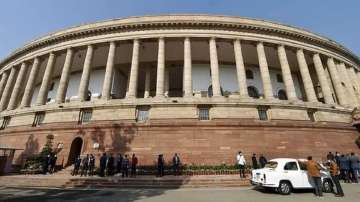It's been 21 years since Pakistan-guided terrorists launched a brutal attack on the Indian Parliament, and killed at least nine people including six security personnel, two Parliament Security Service personnel, and a gardener. The attack, which has been considered the major attack on the Indian Parliament in history, had a scary episode of killings and a valiant element of saving the heart of democracy.
What happened on December 13, 2001?
On the ill-fated day of December 13, 2001, a white Ambassador car with a beacon and a forged Home Ministry sticker infiltrated outside the Parliament premises at around 11:40 am. Although the white car filled with AK-47 rifles, grenades and five terrorists entered the premises smoothly, it was not an easy task for them to execute their fierce plan. According to multiple media reports, as they entered, Constable Kamlesh Kumari Yadav, apprehend some suspicion of their movement and approached the vehicle. She swiftly ran towards her post to seal gate number 1. However, the terrorists opened fire at her and killed the Constable on the spot.
Subsequently, the car moved towards gate number 12 but was forced to turn back amid the presence of tight security. The vehicle then hit the-then Vice President Krishan Kant’s vehicle which forced them to move out of the car. Subsequently, all five terrorists showered with AK-47 rifles and hurled bombs.
The gunfight lasted about 30 minutes, and all the terrorists were eventually killed. During the confrontation, five security personnel of Delhi Police, one lady constable of the CRPF and two security assistants of Parliament Watch and Ward section, a gardener and a photojournalist were also killed.
Nation watched the horrific incident live
As there was a winter session going on in the Parliament, there were a number of media personnel present on the spot who covered the incident and broadcast it live. Luckily, nearly 100 legislators who were present inside the Parliament were evacuated safely.
What happened to terrorists?
Within 72 hours of the incident, the Special Cell of the Delhi Police cracked the case with the help of vehicle numbers and call details. The investigating agency found that all five were members of the Pakistan-based militant groups Lashkar-e-Taiba (LeT) and Jaish-e-Mohammed (JeM).
Later, at least four accused-- Mohammad Afzal Guru, a former Jammu Kashmir Liberation Front (JKLF) militant, his cousin Shaukat Husain Guru, Shaukat’s wife Afsan Guru, and SAR Geelani, an Arabic lecturer at Delhi University-- were arrested. Within two weeks, the court acquitted Afsan and sentenced Geelani, Shaukat and Afzal to death. Later, Geelani was acquitted by the Supreme Court in 2005 and was given 10 years in prison. However, in 2013, Afzal Guru was hanged to death in the Tihar Jail.
PM pays tribute to the victims of the Parliament attack
Prime Minister Narendra Modi, several Cabinet Ministers, and Parliamentarians also paid floral tribute to the security personnel and victims, who sacrificed their lives in defending the Parliament during the terror attack in 2001. President of India Droupadi Murmu also remembered the victims. Besides, Vice-President and Rajya Sabha Chairman Jagdeep Dhankhar and Lok Sabha Speaker Om Birla also paid tribute to the security personnel.
Also Read: December 13, 2001: The day Parliament was attacked - Recounting the horrific 40 mins that shook India
Latest India News
